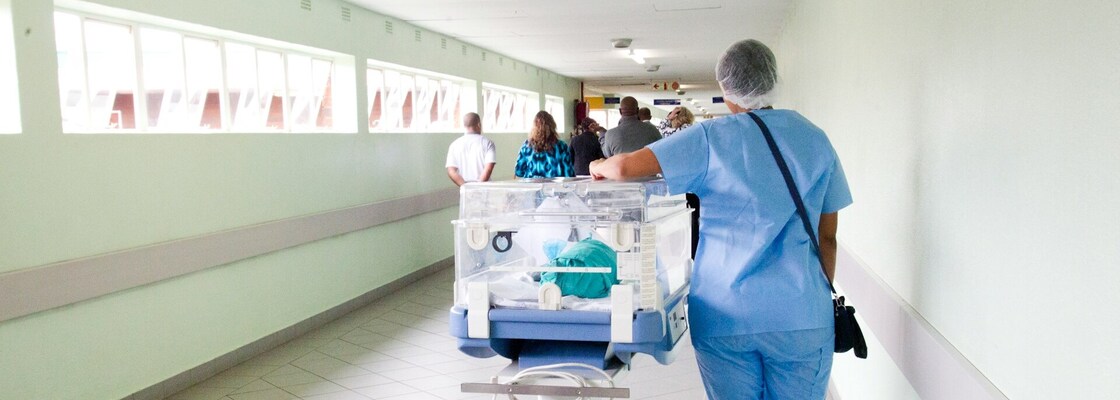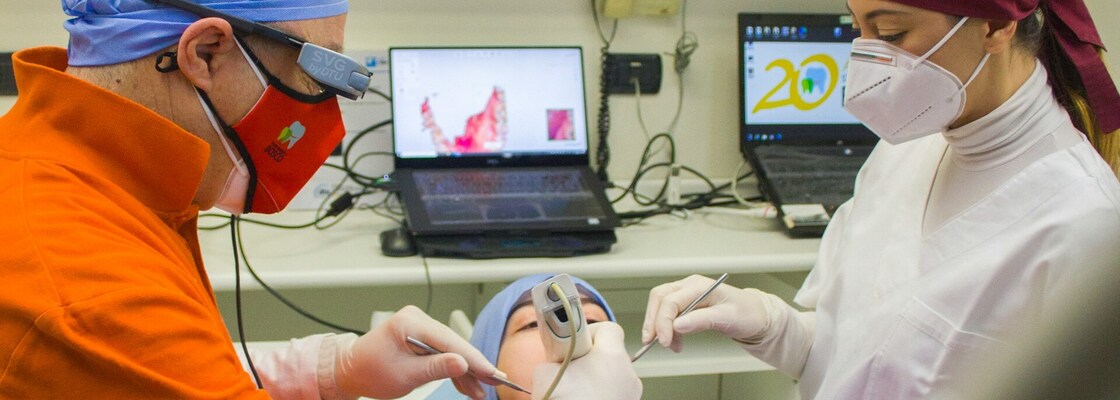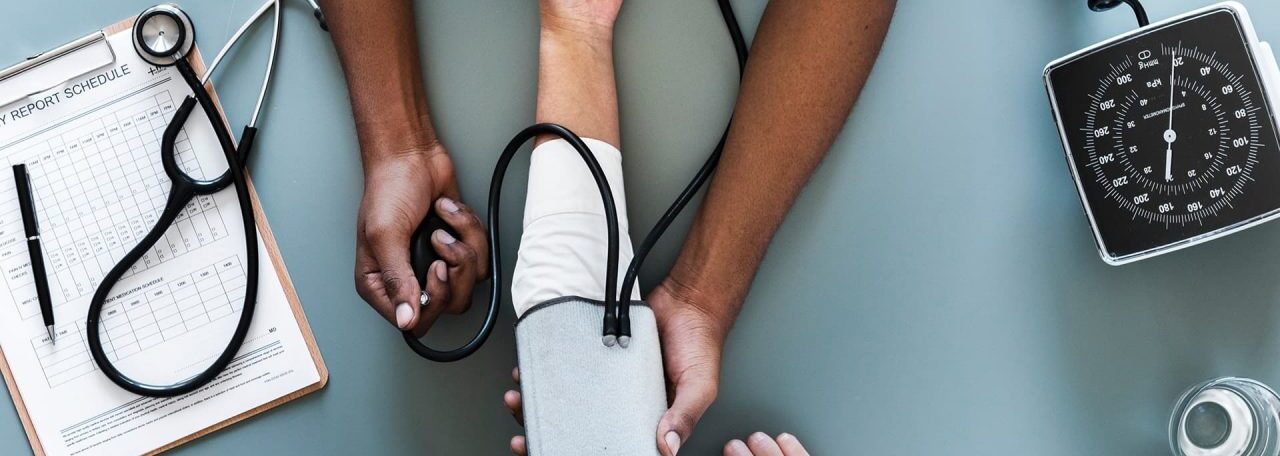Thinking about living in or visiting Portugal? Or maybe you’ve already made the move? Either way, figuring out the Portugal healthcare system is probably high on your to-do list—and for good reason. Whether it’s a routine check-up or an unexpected emergency, knowing how things work can save you a lot of stress.
The good news? Portugal’s healthcare system is actually pretty great. It’s affordable, accessible, and ranks well compared to other countries in Europe.
In this blog, we’ll break it all down for you. From public vs. private healthcare systems to medical costs, insurance tips, and what to do when you need access to healthcare in Portugal—we’ve got you covered. So, let’s jump in!

Public and Private Healthcare in Portugal
The Portuguese health system gives you options—public and private—so you can decide what works best for your needs and budget. Whether you’re looking for affordable care or faster access to specialists, it’s good to know how it all works to make informed decisions. Let’s break it down.
Public National Health Service (Serviço Nacional de Saúde – SNS)
So, does Portugal have universal healthcare? Portugal’s public healthcare system, called Serviço Nacional de Saúde (SNS), is managed by the Ministério de Saúde (Ministry of Health) and is available to residents. SNS healthcare is national, universal, and free for those under 18 or over 65 years old. It is universal, as all Portuguese citizens and foreign residents have access to it.
If you’re legally living in Portugal, you’re eligible to use it, and EU, EEA, and Swiss citizens with a European Health Insurance Card (EHIC) card can also access it for short-term stays. UK citizens can also use the Global Health Insurance Card (GHIC), which replaced the European Health Insurance Card (EHIC) after Brexit.
The good news? It costs next to nothing! Most services—like doctor visits, hospital care, and maternity services—are either free or cost just a few euros. You might pay something like €5–10 for a general appointment or small fees for tests and treatments. Prescriptions are subsidized too, so medications won’t break the bank.
That said, public healthcare isn’t perfect. Waiting times for non-urgent appointments can be long, and not every health treatment is covered. Dental care, for example, often has to be paid for out of pocket. And while doctors and staff in big cities usually speak English, it might be trickier to find English-speaking professionals in smaller towns.
Private healthcare in Portugal
Private healthcare in Portugal is a popular choice for anyone looking to skip the wait and get faster access to specialists. It’s also known for offering more comfort and personalized medical care—think shorter lines and more time with doctors.
Private care isn’t free, of course, but it’s often more affordable than you might expect, especially if you have private medical insurance and when compared to private healthcare in the USA or other European countries. Many employers even include private health insurance coverage in their benefits packages.
Portuguese residents and locals often go private for things like dental work (not covered by the SNS), vision care, and specialist appointments, but plenty of hospitals and clinics also offer general medical services. And if you’re worried about language barriers, private facilities tend to have more English-speaking staff, which is a big plus if you’re still working on your Portuguese.
A lot of people in Portugal use a mix of both systems—public healthcare for basic needs and private care for anything urgent or specialized. It really depends on what matters most to you—saving money or saving time.
Is healthcare in Portugal good?
Portugal’s healthcare system has earned a solid reputation globally, and it’s easy to see why. Back in 2000, the World Health Organization (WHO) ranked it 12th in the world, considering factors like life expectancy, quality of care, and efficiency.
More recently, the country has continued to perform well in international rankings, with Portugal healthcare ranking 22nd in the World Index of Healthcare Innovation for 2022, scoring high for quality and patient-focused care. Portugal was also ranked 23rd in the Numbeo 2025 Health Care Index. Even lifestyle rankings highlight its health benefits—Lisbon and Porto both ranked well on the Healthiest Places to Live Index in 2022, ranking 4th and 14th, respectively.
Health Services and Costs
Public healthcare in Portugal is generally free of charge for patients who are Portuguese citizens and temporary or permanent residents in Portugal – especially if you are under 18 or over 65 years old. However, depending on how you access the health service, you may need to co-pay for certain services.
For private healthcare, depending on the health insurance plan, you could pay around €40–100 per month for private health insurance, depending on the level of coverage you need.
Registering for Healthcare in Portugal
To access public healthcare in Portugal, you first need to get your Portuguese NIF Number (Número de Identificação Fiscal or tax identification number)—your employer usually handles this, but self-employed individuals will need to apply for one themselves.
Once that’s done, head to your local health center (centro de saúde) to register for an SNS user number (número de utente do SNS)—bring your Portugal social security card, ID or passport, proof of address, and residence permit, visa, or residence certificate. Portuguese citizens already have their SNS number on their citizen card.
After registering, you can use the SNS online portal to book appointments, find providers, and manage your healthcare info.
Can EU citizens use the National Health Service in Portugal?
The short answer is yes. Nationals of one of the European Union countries can use the National Health Service in Portugal. You must show your European Health Insurance Card (issued in your country of origin) and your passport or identification document in order to gain access to the public Portuguese healthcare system.
Can UK citizens use the National Health Service in Portugal?
Yes! As a UK citizen, you have access to the National Health Service in Portugal. You will need to show your UK Global Health Insurance Card (GHIC), which replaced the European Health Insurance Card (EHIC) after Brexit.
Can US citizens use the National Health Service in Portugal?
As a US citizen, you can access these healthcare services in Portugal if you are a legal resident and follow the SNS registration process. This will grant access to medical assistance at public SNS units.
Can non-EU citizens use National Health Service in Portugal?
In Portugal, everyone can receive healthcare, when necessary, although you will be charged the full price of the services provided to you if you don’t have health insurance cover or are not a legal resident registered for SNS.

Is it necessary to have private insurance in Portugal?
In our opinion, it is advisable to get private insurance in Portugal, especially if you are working. With this in mind, many employers often pay for health insurance for their employees.
One key reason we would recommend private insurance is simply because of convenience. You will have shorter waiting times and more choice of hospitals available to you. The pricing is also affordable, especially compared to other European countries and the USA. Find more information on private health insurance in Portugal in our article on health insurance in Portugal
Does travel insurance work in Portugal?
Yes, it does. Short-term visitors must have travel insurance before entering Portugal, which is usually obtained in their country of residence. We advise you to have travel insurance in Portugal because healthcare services are usually very expensive without coverage.
Also, it provides you with a financial safety net for any unforeseen medical emergencies. Need more help with travel insurance? Have a look at our article: Do I Need Travel Insurance for Portugal? Find Out Here!
Healthcare Professionals in Portugal
Portugal’s healthcare system is staffed with highly trained professionals who provide quality care across public and private facilities. Most medical staff, especially in cities, speak English, making it easier for expats and tourists to communicate. Whether you need a general check-up or specialized treatment, you’ll find skilled professionals ready to help.
Doctors in Portugal (general practitioners and specialists)
General practitioners, or GPs, are often your first point of contact in Portugal’s healthcare system, especially in the SNS. They handle routine care, refer you to specialists, and manage ongoing health concerns. Specialists are widely available, though wait times in the public system can be longer, which is why many people turn to private clinics for faster access.

Nurses in Portugal
Portuguese nurses play a key role in patient care, handling everything from routine check-ups to post-surgery recovery. They’re well-trained and often go above and beyond to provide compassionate support. In public hospitals, they’re usually the first to assist patients.

Pharmacists in Portugal
Pharmacists in Portugal are knowledgeable and approachable, offering advice on medications and minor health issues. Pharmacies, called farmácias, are easy to find and usually open late, with some operating 24/7. Many pharmacists speak English and can even recommend over-the-counter treatments if you’re not ready to see a doctor.

Dentists in Portugal
Dental care in Portugal is not covered by the public healthcare system, so most people rely on private clinics. The good news is that dentists are affordable compared to other countries, and appointments are easy to book. Whether it’s a cleaning, filling, or cosmetic work, Portugal’s dentists provide modern, high-quality care.

Hospitals and Clinics in Portugal
To wrap up, if you need to find a hospital in a hurry, rest assured there are many to choose from. Portugal has over 230 hospitals (both public and private hospitals) spread throughout the country. Here is a list of some hospitals in Portugal, along with specialized clinics that are useful to know about:
Public hospitals in Portugal
- Central Hospital of Lisboa (Centro Hospitalar de Lisboa Central, Centro Hospitalar Universitário de Lisboa Norte, Hospital Dona Estefania), Lisbon
- Portuguese Institute of Oncology Lisbon (Instituto Português de Oncologia), Lisbon
- José de Mello Saúde, Carnaxide, Lisbon
- Santa Maria Hospital (Hospital de Santa Maria), Porto
- Central Hospital of Porto (Centro Hospitalar de Porto, Geral de Santo Antonio Central Hospital), Porto
- Bonfim Central Clinic, Porto
- Barlavento Hospital Centre (Hospital Distrital de Lagos / Centro Hospitalar do Barlavento Algarvio), the Algarve
- Braga Public Hospital (Hospital de Braga), Braga
- Póvoa de Varzim Central Hospital (Centro Hospitalar Póvoa de Varzim), Vila do Conde
- Hospital and University Centre of Coimbra, General Hospital (Centro Hospitalar e Universitário de Coimbra, Hospital Geral), Coimbra
Private hospitals in Portugal
- CUF hospitals and clinics across Portugal
- Hospital de Loulé, Loulé
- Hospital Cruz Vermelha, Lisbon
- LS Hospital – Medical Center and Research, Sangalhos
- Hospital da Luz, Lisbon
- Hospital Lusíadas, Lisbon, Porto, and Albufeira
Specialized clinics in Portugal
- Ferticentro Fertility Clinic, Coimbra
- GSD Dental Clinic, Lisbon
- Joaquim Chaves Saúde Medical Oncology and Specialized Medicine Clinics across Portugal
If you need to find a doctor in Lisbon, click here to find more information.
So, there you have it – everything you need to know about Portugal healthcare for foreigners in one place, so you can receive the best possible healthcare while you’re in the country. We publish new content every day so be sure to subscribe to our newsletter and get notified of the latest tips for your visit or move to Portugal.
What is the quality of healthcare in Portugal?
The quality of healthcare in Portugal is highly rated, offering affordable, efficient, and high-quality care through both public and private systems. Portugal healthcare for expats is also accessible, making it easy to get coverage if you move to the country.
How does the Portuguese healthcare system work?
It’s a mix of public care (SNS) for residents and private care for faster access and specialized treatments.
What are the main hospitals in Portugal?
Some of the major hospitals include Santa Maria Hospital in Lisbon, São João Hospital in Porto, and Coimbra University Hospital.
How much does healthcare cost in Portugal?
The Portugal healthcare cost is either very low or free at public facilities, while private care is affordable with insurance, usually priced at around €40–100 per month.
Is healthcare in Portugal free?
Does Portugal have free healthcare? It’s not entirely free, but many services are heavily subsidized, and children and seniors often get free care.
How to find a good doctor in Portugal?
You can ask for recommendations, check online reviews, or use the SNS portal and private healthcare directories to find a doctor you’re comfortable with, although all doctors in Portugal are well educated and experienced in providing quality care.
What is the average wait time for medical appointments in Portugal?
Public system waits can be weeks depending on what medical appointment it is, but private clinics usually offer same-week appointments.
How to access emergency medical services in Portugal?
Dial 112 for emergencies—it’s free, and ambulances quickly take you to the nearest hospital.
What are the differences between public and private healthcare in Portugal?
Public care is affordable but may have long waits, while private care offers more English-speaking doctors and shorter waiting times.
How do European citizens access healthcare in Portugal?
EU citizens can use their EHIC card for public healthcare during short stays or register for long-term access as residents.
How do non-European citizens access healthcare in Portugal?
Non-EU citizens need private health insurance or can register with SNS if they have Portuguese residency.
What is the process for emergency healthcare for tourists in Portugal?
Tourists can get emergency care at public hospitals, but it’s wise to have travel insurance for additional coverage.
How to get a prescription filled in Portugal as a foreigner?
Bring your doctor’s prescription to any pharmacy—many foreign prescriptions are accepted, or you could make an appointment with a local doctor to issue a new one.
How to handle a medical emergency as an expat in Portugal?
Call 112 or go to the nearest hospital ER—make sure you have your SNS number or insurance details handy.
What are the healthcare options for retirees in Portugal?
Retirees can use the public system (SNS) with residency or opt for private insurance for quicker access to services.
How does Portugal’s healthcare system compare to other European countries?
Portugal’s healthcare is affordable and high-quality, ranking well globally. The Country ranks 22nd in the 2022 World Index of Healthcare Innovation, scoring high for quality and patient-focused care. Portugal was also ranked 23rd in the Numbeo 2025 Health Care Index.
What should foreigners know about the Portuguese healthcare system?
It’s accessible and affordable but having private insurance can help avoid long waiting times for specialists.
Are there any special healthcare services for foreign students in Portugal?
Students from the EU can use their EHIC card, while others usually need private insurance or university-provided plans.
How to navigate the Portuguese healthcare system as a new resident?
Start by registering with SNS for public care, get private insurance if needed, and don’t hesitate to ask locals for tips!






